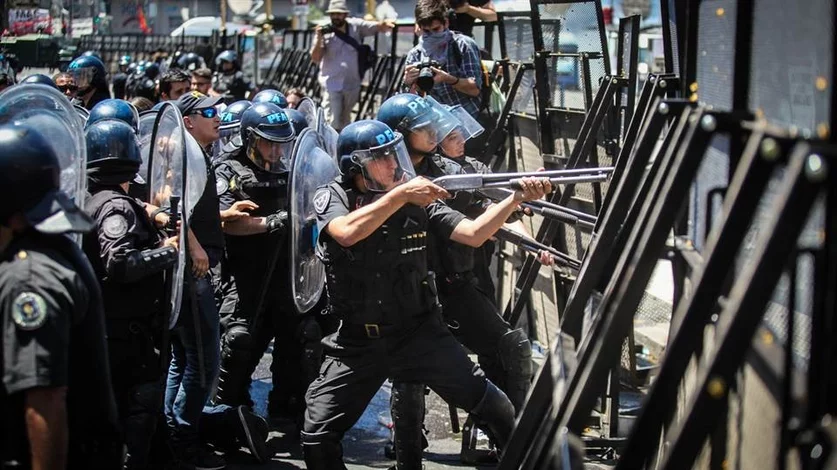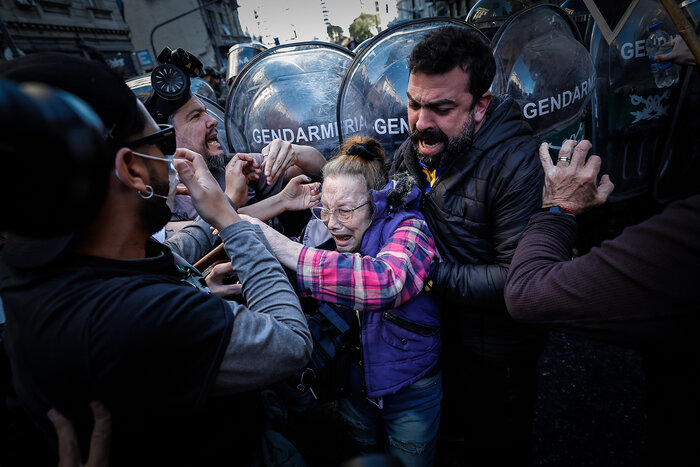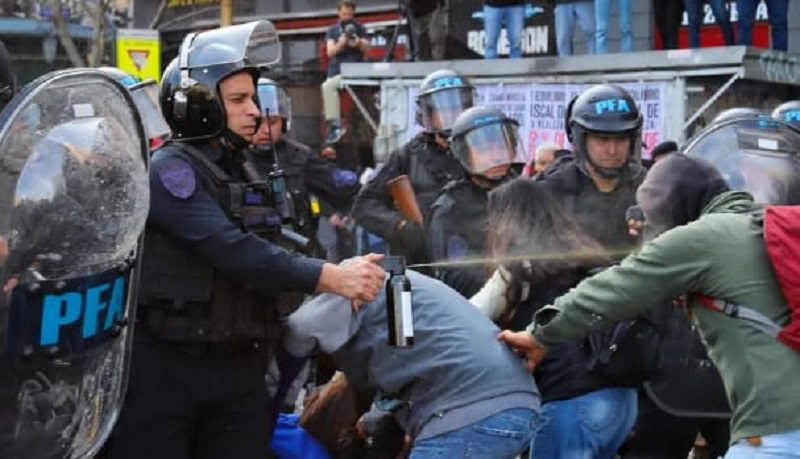News
 Amnesty International's Harsh Report on Anti-Picketing Protocol: "Dissent at Risk"
- 12/01/2025 » 13:43 by cronywell
Amnesty International's Harsh Report on Anti-Picketing Protocol: "Dissent at Risk"
- 12/01/2025 » 13:43 by cronywell
Amnesty International's Harsh Report on Anti-Picketing Protocol: "Dissent at Risk"
Amnesty International (AI) presented a report on Thursday in which it denounced the "disproportionate" use of force by the government of Javier Milei in response to the demonstrations. According to the organization, the federal security forces followed a repressive pattern based on the "anti-picket protocol" promoted by Minister Patricia Bullrich.

What Amnesty International's report says
According to AI, the report on the repression of social protest yielded alarming figures: during 15 demonstrations, 1,155 people were injured, many of them seriously injured. Of these, 33 were hit in the head or face by rubber bullets, which caused severe damage to their vision. In addition, 50 journalists were injured while covering the protests.

In total, 73 people were "criminalized" for participating in the demonstrations. The report details that documented repressive practices include the abusive use of tear gas, rubber bullets, water trucks, batons and batons, and arbitrary detentions. "In emblematic cases, children were even affected by repressive violence," the organization's text said.
Paola García Rey, deputy director of Amnesty International, explained that the report reveals a clear restriction on the exercise of freedom of expression "in the streets" and a "shrinking of civic space."
Regarding the data that support the report, García Rey pointed out that the organization resorted to various methodologies, such as requests for access to public information from the national state, which were in many cases "denied by the Ministry of Security of the Nation."

30 testimonies of victims who suffered the disproportionate use of force. We also survey images because, now, social networks enable much more dissemination," he explained.
In this sense, he stressed the importance of making violence visible, assuring that "giving an account of the situation of alarm in the face of violence" seeks to highlight how force is used to restrict dissent and "silence voices". Amnesty's representative in Argentina also stressed that, although the country "has a very active use of the street," this does not justify the government's repressive response.
"Without a doubt, Argentina has a very active use of the street and, surely, it was necessary to have a robust debate on the channeling of popular demands to the Government. But the answer can never be fear as a way to inhibit expression and violence as a strategy to achieve it," he said.
Meanwhile, the organization considers that the repression of protests not only infringes fundamental rights, but also generates an inhibitory effect on citizen participation and the exercise of democracy.

Recommendations to the national government
By way of conclusion, the report concludes with a series of recommendations to Milei's government. "Amnesty International urges the Argentine government to adopt concrete measures that guarantee respect for human rights in the context of social protests," the text emphasizes.
Among these measures, the repeal of the anti-picketing protocol stands out, a regulation that, according to the organization, "not only violates fundamental human rights, but also contributes to the criminalization of those who demonstrate." In addition, they urge the implementation of police regulations and trainings that align with international standards on the right to peaceful assembly and the use of force.
"The use of force by the authorities must be framed by principles of proportionality and respect for human rights," the report concludes
